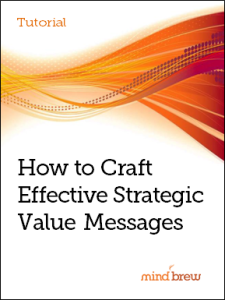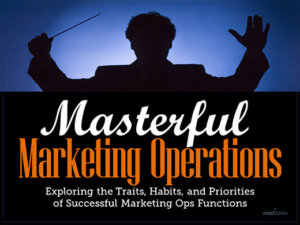We recently ran into an article about auto racing called “Speed Secrets: Why Not Going Slow Is More Important Than Going Fast.” The author explains that when you’re an amateur racecar driver, it’s tempting to think that adding a lot more horsepower is the key to improving your times. After all, if you have a lot of horsepower, you can really go fast on the straightaways.
However, on most tracks, the car spends much more time in the slow sections of the course—the turns—than in the fast sections. If you can increase your speed just slightly on these slow sections by improving your car’s handling, it actually has a much bigger impact on your overall time than improving your horsepower. He uses some statistics from an outing at a track with his son to prove his point that it’s better to focus on not going slow than to focus on going fast.
What does all this have to do with marketing operations?
It’s actually a really good metaphor for improving B2B sales and marketing performance. If you want to get more wins, it’s tempting to think that you have to add more “horsepower” by doing something big like doubling the size of your sales team or launching a big, new campaign.
But the truth is that making small tweaks—the equivalent of slightly improving your racecar’s handling—can actually yield much more significant results than doing something drastic like going on a hiring binge or spending more money.
In any sales process, prospects go through a series of steps before making a purchase. Typical steps might include signing up to download a piece of content, talking to a sales person, demoing the product, setting up an online account, etc. Those steps are going to be very different from one organization to another depending on your industry, but in general, you should be able to identify four to seven stages or “gates” in your sales process.
Of course, some prospects are going to drop away at each of those stages. But if you can make small changes so that a few more prospects make it from stage one to stage two of your sales process, you’ll also have more people making it to stage three and stage four, and so on down the line. If you can change each step just slightly, either increasing the number of prospects that move to the next stage or decreasing the amount of time it takes to get through the stage, you can dramatically increase your sales and marketing results.
You can see how this works in more detail in the training titled How to Optimize Your Sales Funnel. It explains a tried-and-true process that has helped many B2B firms improve their sales performance without doing anything drastic, and it walks you through step-by-step.
To be successful in marketing operations, you don’t need to make radical changes; you just need to be willing to look for the little tweaks that will yield measurable improvements. And you need to repeat that process over and over again.
And above all else, to succeed in marketing, you need to never stop learning—even if that means learning from an article about car racing.







